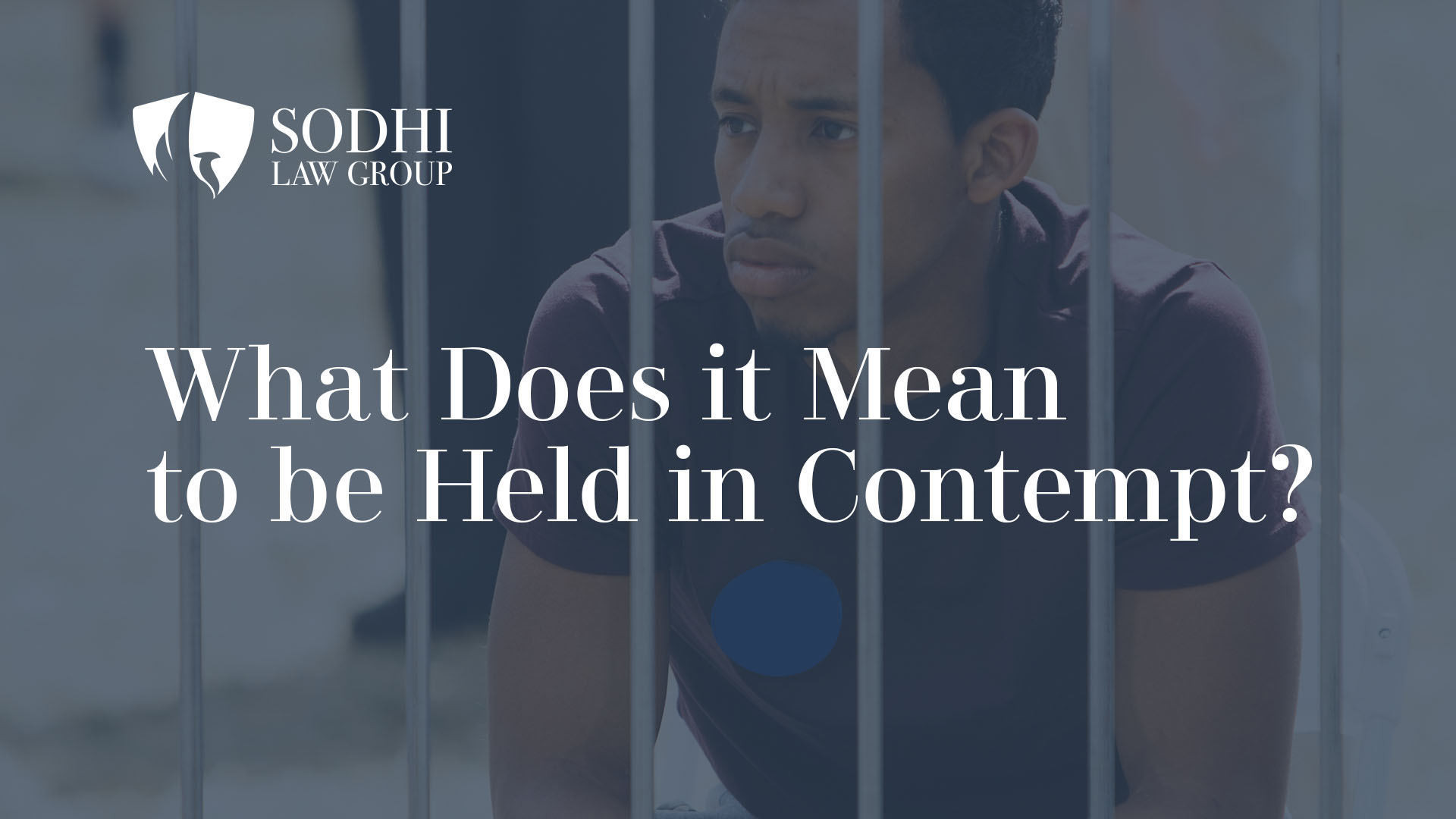What Does it Mean to Be Held in Contempt?
Being held in contempt of court can mean serious business. So what does it mean to be held in contempt?
Contempt of court refers to actions which defy a court’s authority, cast disrespect on a court, or impede the ability of the court to perform its function. Contempt comes in two forms, criminal contempt, and civil contempt.
Criminal Contempt
Actions that would typically constitute criminal contempt of court are those where a party has caused a serious disruption in the courtroom. For example, yelling at the judge or refusing to testify before a grand jury.
Charges for Criminal Contempt
Criminal contempt charges are punitive. This means that they serve to deter future acts of contempt by punishing the offender no matter what happens in the underlying proceeding. Criminal contempt punishment may include jail time and/or a fine. Criminal contempt charges become separate charges from the underlying case. To make matters worse, these charges may live on after resolution of the underlying case.
Individuals charged with criminal contempt are typically granted the same constitutional rights guaranteed to criminal defendants. These rights include the right to counsel, put on a defense, and a jury trial in certain cases. Charges of criminal contempt must be proven beyond a reasonable doubt.
Civil Contempt
Civil contempt of court is usually the result of someone failing to follow a court’s order that benefits someone else. The injury is that of a private party’s rights. For example, failure to pay court-ordered child support or a parent refusing to allow the other court-ordered visitation. Typically, the damaged party may file an action for civil contempt.
Sanctions for Civil Contempt
Civil contempt sanctions aim to restore the rights of the party who was wronged by the failure to satisfy the court’s order or move an underlying proceeding along. Civil contempt sanctions typically end when the party in contempt complies with the court order or the underlying case is resolved.
The court may order the incarceration of people held in civil contempt. However, people held in civil contempt are generally not given the same constitutional rights that are guaranteed to criminal contempt defendants.
Those held in civil contempt generally must be given notice of the contempt sanctions and an opportunity to be heard, but usually, are not guaranteed a jury trial. Also, civil contempt does not need to be proven beyond a reasonable doubt. Finally, civil contempt sanctions can be indefinite, lasting until either the underlying case is resolved or the party in contempt complies with the court order.
Who can be held in contempt?
Deciding who can be held in contempt and the type of contempt to be charged is left to the judge’s discretion. Those held in contempt can include parties to a proceeding, attorneys, witnesses, jurors, people in or around a proceeding, and officers or staff of the court itself. No one is exempt. If you’re in the courtroom or part of a proceeding, you must heed to the court’s rules or be faced with the judge’s wrath.
One way to minimize the risk of a contempt of court charge is to have an attorney stand and speak for you. An attorney’s advice can help keep you in compliance with court orders or help argue on your behalf when a contempt charge is tossed at you. Contact the Sodhi Law Group and get some peace of mind.
This blog does not create an attorney-client relationship. This blog is legal information and should not be seen as legal advice. You should consult with an attorney before you rely on this information.


